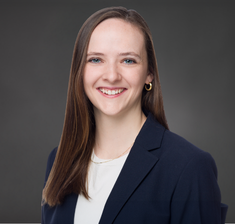Mobile Heath Operations
You don't have to do it alone.
It’s easy to buy a mobile clinic - run it through procurement. It's more challenging to build a program - procurement can't help with that.
There are many steps to compliance and staffing to billing and workflows; mobile healthcare has moving parts that don’t always fit when translated from fixed-site workflows. And without a community engagement plan designed to attract new patients to a model of care they're unfamiliar with, programs can stall before they have a chance to be successful, much less significant.
What is Operations?
Teach you to do it: Our Advisory team walks you through our 102 page Mobile Health playbook, which contains all you need to know about mobile medical, dental, behavioral models.
Do it with you: Our field operations team provide an array of clinic operations support for health systems who need clinic staffing. Our Operators handle everything - your providers meet our CHW-trained Operators on site where the mobile clinic is parked; open, clean, and ready to see patients.
At the end of the day, providers leave and we strike and transport the clinic home. During the day we work as a team with intake, traffic, security, and more.
Do it for you: Some busy health systems want the results of a mobile health program without the hassle of managing it at all. In that case, we will provide a program as a contract service with full financial risk and management obligations under the color of your health system. These programs can operate like joint-ventures with no- to low- upfront payments.
.png?width=1366&height=768&name=Mission%20mobile%20Medical%20Provider%20Solutions%20(6).png)
Your Guides
Leaders with hands-on experience — from running clinics to shaping national programs.

Mykayla Smith, MPH
VP, Mobile Health Operations

Bailey Spates
Program Manager
.png?width=235&height=224&name=Untitled%20design%20(32).png)
Grace May, MPP
Implementation Specialist

Aaron Borrelli, MPH
Sr. Program Manager
The System
Step 1: Assess & Align
After a rapid community needs assessment, we work with your clinical leadership to define what you and your community wants, what you and your community needs, all of your objectives for a mobile health program, and all your concerns.
Step 2: Produce the Playbook
We co-create a plan for the team's review and approval. A playbook would have population health metrics, program objectives, the interventional theory, an operations plan with staffing model, financial projections, potential and/or committed community partners, workflows, and more.
Step 3: Start, then Optimize
The first 6 months of Year 1 are testing our assumptions and adjusting where needed. Then, the operational improvement plan kicks off; a series of 12 week sprints focuses on improving a facet of the program. Along the way, process improvements from our other programs will pour in as well, driving rapid, significant, and durable success - better health outcomes for your neighbors.
Speak with a technical specialist or browse our Research Library
Click below to schedule time with someone from our team or to browse our Research Library.
Built to Last
Mobile health programs are difficult for one person to build and operate. Others try to help, but everyone has their own responsibilities and it often comes down to a single champion to keep things going.
With help, it's more likely your program will weather staff turnover, funding lapses, and ultimately deliver healthcare to every corner your community. Hope is not a strategy.
What Happens Without Operations Support?
• You hire the wrong staff
• You direct them to do the wrong thing
• Staff get frustrated — and sometimes quit
• Clinics get disorganized or damaged
• Funders lose confidence
• The mission gets lost in the chaos
Caring for your community should happen by choice, not by chance.
%20(2500%20x%201080%20px).png?width=2500&height=1080&name=Untitled%20(Website)%20(2500%20x%201080%20px).png)
